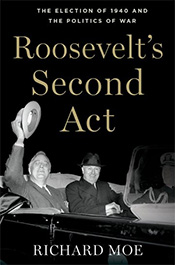 |

Good morning!
Here we are, plunging at breakneck speed toward the beginning of the holiday season and the end of another year. Time has become our most precious commodity - there never seems to be enough of it these days.
According to Cicero, "friendship makes prosperity more shining and lessens adversity by dividing and sharing it." Although our workdays are hectic, time is too precious to give it all over to work. Make the most of the holiday season… create memories with friends and prosper all year long.
Happy holidays, my friends!
Cordially,

Marijo McCarthy, Esq.
President, Widett and McCarthy, P.C.
Good contracts for growing small businesses
 |
| Those Pesky — But Inevitable — Non-Disclosure Agreements |
 |
|
Although it has been years since I shared my thoughts with you on non-disclosure agreements (NDAs), I find that today, my clients are being asked to sign them more frequently than ever. So let's revisit the topic and have another look at these particular types of contracts.
These days, one is often asked to enter into a non-disclosure agreement before moving to the next step in a new business proposal. It's understandable - companies want to protect their most precious secrets (and they are often being gently prodded by their company counsel to do so!).
This type of request occurs most often when the proposed client or customer is a technology company. Even so, it is becoming more and more routine when engaging with traditional product and service companies as well. So get used to it and keep an eye on what you are being asked to sign.
Depending upon the kind of transaction being discussed, NDAs can range from "fair and even-handed" on one end of the continuum, to "rigid and unreasonable" on the other. It really depends upon the culture of the company with whom you are about to do business (and therefore, calls for review and caution).
As someone who routinely reviews and drafts NDAs, I know there are certain "exceptions" to the rules which are standard and should be found (or added) to an NDA before advising my clients to sign one. If you don't find these standard exceptions, it means the drafter has chosen to opt for a more rigid form of NDA. You need to push back in these instances - reasonably and civilly - until those exceptions are added.
What might those exceptions be? Let's review a few samples, all of which clarify what is meant by "confidential information," the concept at the heart of any NDA.
Confidential information does not include information which:
- is generally known to the public at the time of disclosure or becomes generally known through no act or omission on the part of the Recipient;
- is already in the Recipient's possession at the time of disclosure by the Disclosing Party, as can be properly documented;
- becomes known to the Recipient through disclosure by sources other than the Disclosing Party having the legal right to disclose such Confidential Information, as can be properly documented;
- is required to be disclosed by the Recipient to comply with applicable laws or governmental regulations, provided that the Recipient provides prior written notice as soon as practicable in all of the circumstances of such potential disclosure to the Disclosing Party so that the Disclosing Party may take reasonable and lawful actions to avoid and/or minimize the extent of such disclosure; or
- is independently developed by Recipient without any use of Confidential Information, as can be properly documented."
If the NDA you have been asked to sign contains some or all of these reasonable exceptions, and assuming there are no other hidden "gotchas," the party disclosing its confidential information to you in order that you may provide services or products, has given some careful thought to what is protectable and what cannot reasonably be expected to be protected, under the circumstances.
One last thing: Be sure your employees are equally bound. You aren't the only person who will receive a client's confidential information, but you will be the one responsible if your employee fails to protect it!
|
 |
| Books I Like |
 |

If you're a regular reader, you know that I never tire of historical biographies. I have a habit of fixing on a historical figure and reading a dozen variations on a theme of that person's life. It's a great way to get a well-rounded picture of someone who made history.
And so it is with Franklin Delano Roosevelt, whose decision to accept a record-breaking third term is the fascinating subject of Roosevelt's Second Act: The Election of 1940 and the Politics of War, by Richard Moe.
As Hitler rolled across Europe; as France fell; as Churchill pleaded with FDR for support of any kind; it became clear to FDR that some form of American involvement would be necessary. And yet, Americans had been through one Great War in foreign lands and now struggled with their own economic problems. FDR knew that American support of its allies would become a necessity, yet if he got too far ahead of public opinion, he would never be able to lead Americans towards his world view.
So, in spite of making clear and unambiguous preparations for a well-earned retirement to Hyde Park, FDR's internal demons continued to wrestle with a very basic question: If not he, then who?
The internal and external forces at play; the strong sense of responsibility vs. the fear of appearing arrogant and ambitious; the very real health issues; the political stumbles which rendered him less than popular … all of these issues and more spin a picture of a man at the crossroads of personal and public decisions whose impact would take America into war and possibly save a world.
Throughout the book, FDR is portrayed as one of the smartest, most manipulative, most successful politicians of modern times and, as Moe would lead us to believe, that wasn't a bad thing as the world stood poised on the brink of an unthinkable second great war.
Well-written and enjoyable, I recommend adding this to your collection of FDR memorabilia. Don't have one? You could start with "Roosevelt's Second Act."
|
 |
| About Us |
 |
|
Widett and McCarthy specializes in advising small
business owners in the area of contracts.
Whether
reviewing a contract for services with your customer,
negotiating a lease with your landlord or finalizing
financing documents with your lender, we make sure
your best interests are protected.
In addition, and for
those clients whose successful growth requires a
more comprehensive relationship, we act as "general
counsel:" On-call when you need us as a sounding
board, legal advisor and strong right hand.
|
|
 |
Widett and McCarthy, P.C.
1075 Washington Street
West Newton, MA 02465
Telephone: 617.964.5559
Facsimile: 617.964.5529
Email
Us | Visit Our Website
|
 WHO WE ARE
WHO WE ARE  WHAT WE DO
WHAT WE DO  NEWSLETTER
NEWSLETTER  CONTACT US
CONTACT US  TERMS OF USE
TERMS OF USE